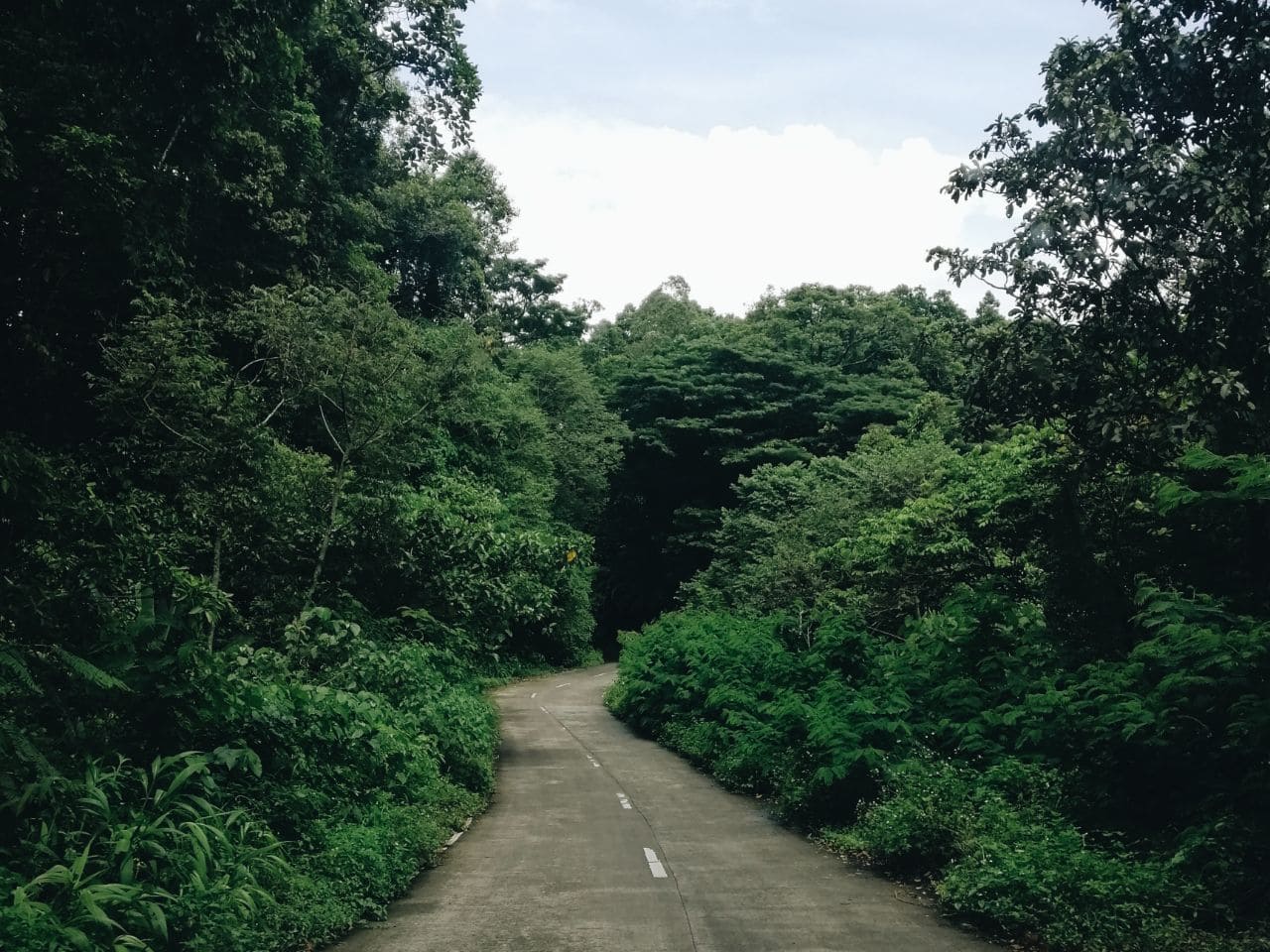The things we find when we aren’t looking are often the things we need when we are.
I’ve recently gone back to a more consistent meditation practice as a result of multiple consecutive forced quarantines over the last two months.
From forgetting how meditation felt like entirely, I’ve returned to a steady routine of 10 minutes a day. It’s fascinating to me how forgetting something only to learn it again can renew our relationship with it. We’re almost revisiting the activity as a different person, and sometimes, we’re better at it on the second relearn. This has been my relationship with meditation as of late.
In the beginning, it felt like shooting a basketball for the first time in three years. In my head, I know how shooting works — which muscles are activated, when to release, the follow-through — it all makes sense until I actually do it. The jump is awkward, the shot is off. But after a few shots in, it slowly begins to come back. But I notice that it’s not the same shot as three years before. It’s a new form, and in some ways, it’s better.
Maybe there’s beauty in the separation from an activity, and maybe this beauty lies in the rediscovery upon returning to it. I’ve found this case to be true in my experience with sitting and doing nothing, which is essentially what meditation is. With every return comes a new lesson that wouldn’t have come without the prior hiatus. And lately, it’s been quite the eye-opener.
Among the new things that meditation has taught me recently is the ability to notice without searching for that thing to be noticed.
When I become aware of my senses, and of the weight of my body, and of the sounds I hear, I try do so without the strain of reaching out for them, at least that’s the goal.
You can actually try this simple exercise yourself. If you’ll indulge me for a minute, take a moment to be aware of your physical surroundings and sensations. All the sounds, sights, smells, the temperature of the room you’re in, the rise and fall of your breath, the weight of your body on your seat, take note of them as they arise.
Now, as you notice these sensations, try not to go to them. Don’t seek them out. Instead, stay centered and let them come to you. There’s a subtle difference between “going” and letting them simply arrive, but it’s a significant one.
One trick that’s helped me do this is to imagine my mind as something that’s not separate from what it perceives.
The sound of the air-conditioning in the background? That’s appearing in my consciousness. The warm breeze I feel on my face? Same thing. The weight of my body at the point where my butt touches my seat? That, too, is appearing in my mind. The mind simply becomes the place where everything appears.
In meditation — at least in the ones I’ve been practicing — I’m guided to allow things to simply arrive at my consciousness. No effort, no force, only mindfulness and a little patience. Whatever arrives, arrives. And I take them as they are, without judgment.
By surrendering the mind to the space it perceives, or allowing the mind to be, as the author Richard Lang would say, “space for the world,” we effectively become aware of everything without doing anything. By letting things simply arrive, we notice without the need to reach out to them.
I’m reminded of the concept 无为 (Wú Wéi) from the from the classic Chinese text 道德经 (Dào Dé Jīng or more commonly referred to as the Tao Te Ching).
Literally, Wú Wéi means “no action” or “doing nothing,” which sounds rather appealing especially when taken literally. Consider the line taken from the Tao Te Ching below:
无为而无不为。
The Way never acts,
Yet nothing is left undone.
Tao Te Ching, Chapter 48
Other translations of this line include: “When nothing is done / There is nothing that is left undone” or “By letting go / It all gets done.”
It is easy to interpret this as simply doing nothing to get things done. However, Wú Wéi doesn’t tell us to not do anything. It refers not to the fact of doing something, but to the manner of doing it. Wú Wéi tells us to do things in a way that resembles not doing them — effortless action.
Think of all the moments when you were so deep into an activity that you feel yourself being lifted inches away from your body. You could almost see yourself in action. You may refer to this as being “in the zone.” The author Mihaly Csikszentmihalyi famously refers to this as the flow state, which occurs when a person’s level of skill matches the level of difficulty of a certain task. Five hours in flow feels like five minutes.
One might even say, it’s a state of being one with action. But in the context of Wú Wéi, I’d rather think of it as a state of being one with reality. I can’t help but imagine that famous Bruce Lee interview, where he says:
Be water, my friend.
Empty your mind.
Be formless, shapeless, like water.
You put water into a cup, it becomes the cup.
You put water into a bottle, it becomes the bottle.
You put it into a teapot, it becomes the teapot.
Now water can flow or it can crash.
Be water, my friend.
Bruce Lee
The more I practice meditation, the more I understand that its goal isn’t to cure our current state.
It’s not a place we go to only when we need an escape from an undesired situation or mindset. Rather, it’s a practice. And the goal of this practice is to eventually have the ability to live in such a way that our ordinary waking hours are, as neuroscientist Sam Harris puts it, “punctuated” with moments of awareness, clarity, and presence. Meditation is practice for living.
If this is true, then this exercise within meditation of being “space for the world” — of being aware by simply allowing things to come as they do — is practice for Wú Wéi. Noticing without seeking that which is to be noticed. Finding without looking.
Without stepping outside your door,
You can know the world.
Without looking out of your window,
You can see heaven’s way.
The further you go,
The less you will know.
So those who are enlightened
Know without going,
Understand without seeing,
Accomplish without acting.
Tao Te Ching, Chapter 47
In action, I struggle to fully grasp the concept of Wú Wéi, but in my head, it’s settled as an attitude towards reality. It’s an attitude that manifests itself as effortless action. Ironically, it takes quite a bit of effort to achieve this. It takes practice to let go. This is because the urge for control is more natural to us.
“Know without going, understand without seeing, accomplish without acting.”
Although it seems like it, I doubt this line is an excuse to be lazy or passive. On the contrary, I think it encourages us to get things done, but to do so in a manner that resembles non-action.
What does this look like? It’s a type of effort that does not stress the results. It is effort that flows with the current and not against it. No force, no unnecessary worry, only the complete acceptance of reality as it is, not how we want it to be. It’s allowing things to come to us, not us going — much less forcing our way — to them.
As I write this, I notice how good this sounds in theory, but the next question becomes: how is this applied in actual situations? For instance, doing something with a specific goal or result in mind is not necessarily a bad thing, far from it. In fact, in most cases, this is preferred to having no goal at all.
I suppose Wú Wéi comes into play when we’re at the execution stage of any action.
When planning, the result takes center stage. This is when the “going” part makes sense. But when it’s time to do, to work, to apply ourselves, to create, this is the time to let things come on their own. This is the time to be one with the experience.
Maybe this is the chunk of pure idealism in me talking, but if experience has taught me anything, it’s that good things — maybe even the best of things — come when we least expect them to. Because when they arrive at their own time, they arrive on time. And this is the sort of timing that we can’t quite predict; no clocks were built for this purpose. It’s timing that transcends our ordinary, linear notion of time. God’s time, qualitative time, or Kairos, as the Greeks called it.
These extraordinary moments that exist in ordinary periods of our lives are the stuff of meditative practice. Wú Wéi teaches us to be in constant readiness to welcome these rare moments of arrival, but to remain unbothered by their absence. We are called to be water, ready to take the shape of whatever reality we fall into.
So far, this has been my understanding of Wú Wéi and it’s this understanding that’s been most useful to me. And I allude to its utility in the most real sense of the word. Meaning, it’s through this way of living that I’ve been able to find certain valuable things — things that exist outside of meditation — without the need to search for them. I speak not just of the abstract things, like meaning, achievement, a sense of responsibility, or direction. Although these are all good and essential, the most pleasant and surprising arrivals have been more concrete.
I speak of mental photos, of video clips on my friends’ phones which are to be played again and again in every reunion, of people who have entered my life and those who’ve chosen to stay, of the occasional physical object, of secret spots in my hometown, of overdue breaks, of future plans, of painful lessons, of words on this page.
The things we find when we aren’t looking are very likely the things we need when we are.
In the end, this is the gift of Wú Wéi: the un-promised and the unknown that always seem to arrive on time.
This being human is a guest house
Every morning a new arrival
A joy, a depression, a meanness
Some momentary awareness comes
As an unexpected visitor
Welcome and entertain them all!
Be grateful for whoever comes
Because each has been sent as a guide
Excerpt from The Guest House by Rumi, featured in Kaleidoscope (Coldplay)

